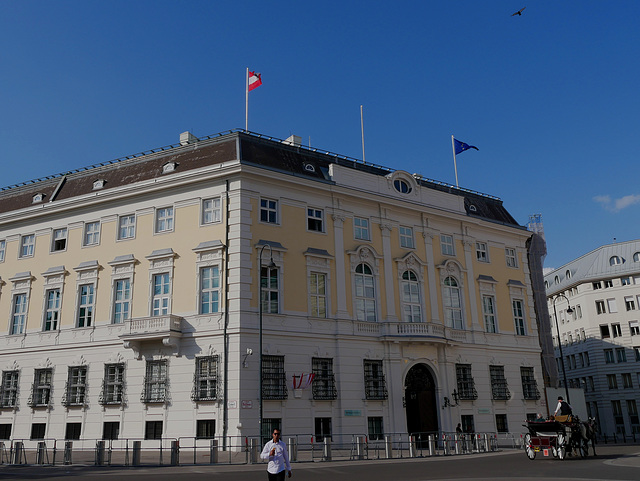Wien, Volksgarten / Vienna, People's Garden
Wien, Volksgarten / Vienna, People's Garden
Wien, Volksgarten / Vienna, People's Garden
Wien, Volksgarten / Vienna, People's Garden
Wien, Rathaus / Vienna, Town Hall
Wien, Rathaus / Vienna, Town Hall
Wien, Burgtheater / Vienna, Castle Theatre
1 (117)a...austria vienna...schwarzenbergplatz
1 (110)...austria vienna...zentralfriedhof...churc…
1 (117)c...austria vienna..palmenhaus...zoo
1 (553)...austria vienna...prater herbst autumn
1 (111)...austria vienna...zentralfriedhof...churc…
1 (118)...austria vienna...am graben
1 (112)...austria vienna...zentralfriedhof..church…
1 (113)...austria vienna...Kriegsgräberstätte..war…
1 (770)...austria vienna...street
1 (118)c...austria vienna...palmenhaus
1 (107)...austria vienna...prater...statue
1 (114)...austria vienna...zentralfriedhof...churc…
1 (120)...austria vienna...old house with statues
1 (563)...austria vienna...zentralfriedhof...churc…
1 (115)...austria vienna...zentralfriedhof...churc…
1 (120)c...austria vienna...zoo...palmenhaus
Wien / Vienna, Ballhausplatz
Wien, Michaeler-Kuppel / Vienna, Michael's Dome
Wien, Minoritenkirche / Vienna, Minorite Church
Wien, "Erde Wasser Feuer Luft" / Vienna, "Earth Wa…
Wien / Vienna, Michaelerplatz
Wien / Vienna, Michaelerplatz
Wien, Loos-Haus / Vienna, Loos House
Wien, Michaelerkirche / Vienna, St. Michael's Chur…
Wien / Vienna, Hofburg, Michaelertor
Wien / Vienna, Hofburg, Michaelertor
Wien / Vienna, Hofburg, Michaelertor
Wien / Vienna, Hofburg, In der Burg
Wien / Vienna, Hofburg, In der Burg
Wien / Vienna, Hofburg, In der Burg
Wien / Vienna, Hofburg
Wien, Burggarten / Vienna, Castle Garden
Wien, Burggarten / Vienna, Castle Garden
Wien, Burggarten / Vienna, Castle Garden
Wien, Burggarten / Vienna, Castle Garden
Wien, Burggarten / Vienna, Castle Garden
Wien / Vienna, Karlsplatz
Wien, Danubius-Brunnen
Location
See also...
See more...Keywords
Authorizations, license
-
Visible by: Everyone -
All rights reserved
-
96 visits
Wien / Vienna, Ballhausplatz


Der zentrale Ballhausplatz in Wien neben dem Heldenplatz heißt so, weil auf diesem Platz die Habsburger verschiedene Ballspielhäuser unterhielten. Diese standen hier von 1741 bis 1903 und in ihnen spielte die Aristokraten verschiedene Ballspiele wie die Vorläufer von Badminton und Tennis. Heute ist der Ballhausplatz für Österreich das, was die Downing Street für Großbrittanien ist. Auf diesem Foto sieht man das Gebäude, in dem heute der österreichische Bundeskanzler die Geschäfte Österreichs führt und das Bundeskanzleramt sein noble Adresse Ballhausplatz 2 hat. Das Gebäude wurde von 1717 bis 1719 von Johann Lukas von Hildebrandt für die Unterbringung der Geheimen Hofkanzlei erbaut, in der der Hofkanzler des Kaisers die Geschäfte zu führen hatte.
The central plaza Ballhausplatz in Vienna next to Heldenplatz is so called because the Habsburgs maintained various ballrooms on this plaza. These stood here from 1741 to 1903 and in them the aristocrats played various ball games such as the precursors of badminton and tennis. Today, the Ballhausplatz is to Austria what Downing Street is to Great Britain. In this photo you can see the building where today the Austrian Federal Chancellor conducts the business of Austria and where the Federal Chancellery has its noble address Ballhausplatz 2. The building was constructed between 1717 and 1719 by Johann Lukas von Hildebrandt to house the Privy Court Chancellery, where the Emperor's Court Chancellor had to conduct business.
Translate into English
The central plaza Ballhausplatz in Vienna next to Heldenplatz is so called because the Habsburgs maintained various ballrooms on this plaza. These stood here from 1741 to 1903 and in them the aristocrats played various ball games such as the precursors of badminton and tennis. Today, the Ballhausplatz is to Austria what Downing Street is to Great Britain. In this photo you can see the building where today the Austrian Federal Chancellor conducts the business of Austria and where the Federal Chancellery has its noble address Ballhausplatz 2. The building was constructed between 1717 and 1719 by Johann Lukas von Hildebrandt to house the Privy Court Chancellery, where the Emperor's Court Chancellor had to conduct business.
- Keyboard shortcuts:
Jump to top
RSS feed- Latest comments - Subscribe to the comment feeds of this photo
- ipernity © 2007-2024
- Help & Contact
|
Club news
|
About ipernity
|
History |
ipernity Club & Prices |
Guide of good conduct
Donate | Group guidelines | Privacy policy | Terms of use | Statutes | In memoria -
Facebook
Twitter

Sign-in to write a comment.